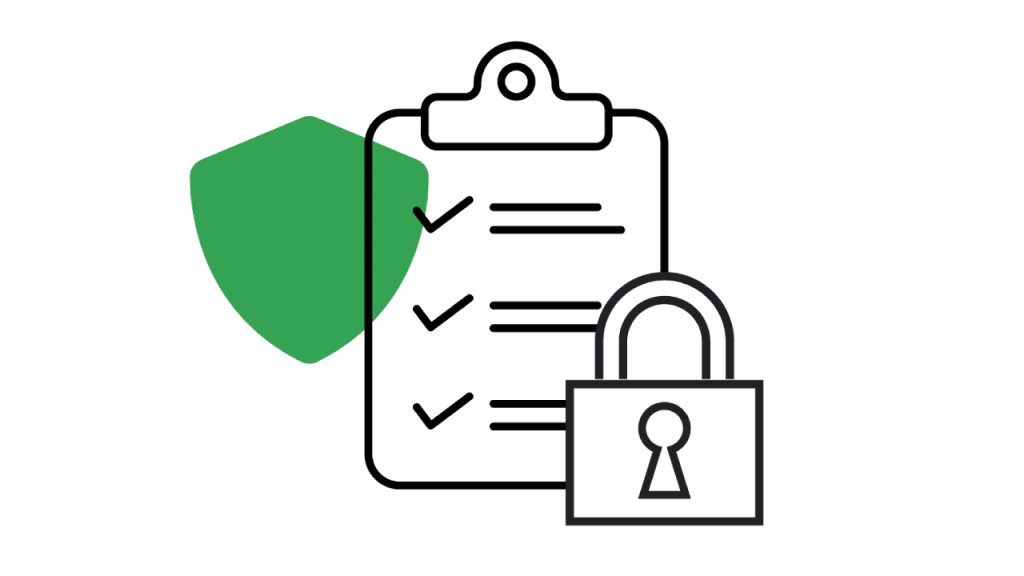As social media continues to grow, so do privacy concerns, especially for influencers who often share personal content with their followers. In 2024, data privacy regulations and online safety protocols have become more important than ever. Here’s what influencers need to be aware of to protect their privacy, maintain trust with their followers, and comply with emerging regulations.

1. Increased Data Collection and Tracking
Social media platforms are collecting vast amounts of user data to refine their algorithms, target ads, and improve user experience. This data includes location, browsing habits, interactions, and sometimes even personal information shared through messages or stories. Influencers should be cautious about sharing sensitive information, as this data can be vulnerable to unauthorized access or misuse by third parties.

What Influencers Can Do
- Limit location-sharing features, especially in real-time posts.
- Use privacy settings to restrict who sees personal information.
- Regularly review platform permissions to understand what data is collected.
2. Understanding Platform Privacy Policies and Data Rights
In 2024, platforms are updating their privacy policies to comply with international data protection laws, like GDPR in Europe and CCPA in California. These policies outline how user data is collected, stored, and shared with advertisers. For influencers, understanding these policies is essential to knowing how their data is used and how it affects their followers.

Recommended Steps
- Regularly review the latest privacy policies on platforms.
- Opt out of data sharing features where possible.
- Communicate transparently with followers about any data-sharing practices they should know about.
3. Be Aware of Third-Party App Access
Third-party apps connected to social media accounts can compromise privacy, as these apps often request permissions to access personal data. Many influencers use third-party apps for editing, analytics, or scheduling, but granting access to these apps can expose their data to potential security risks.

Tips for Safe Third-Party Use
- Limit permissions granted to third-party apps.
- Regularly audit connected apps and remove any that are no longer necessary.
- Choose reputable apps with clear privacy policies to minimize risk.
4. Managing DMs and Personal Interactions
Direct messages (DMs) are a valuable tool for influencers to connect with followers, but they can also be a privacy risk. Conversations in DMs can sometimes lead to data leaks or unwanted interactions. Additionally, scammers and impersonators may attempt to engage with influencers to gather personal information.

Ways to Stay Safe with DMs
- Use privacy settings to filter message requests.
- Avoid sharing personal information or location in DMs.
- Be cautious of unusual requests or links in messages, as these could be phishing attempts.
5. Avoiding Oversharing of Personal Details
Influencers often share parts of their lives with their followers, but oversharing can expose them to risks like doxxing or stalking. Posting details about home locations, daily routines, or close family members can create privacy vulnerabilities.

Tips for Safe Sharing
- Use discretion when sharing personal information or location details.
- Avoid showing identifiable locations in posts, such as street signs or house numbers.
- Keep personal routines, like regular travel or school schedules, private to prevent being tracked.
6. Addressing Fake Profiles and Impersonation
Impersonation remains a growing issue on social media, with scammers creating fake profiles to exploit an influencer’s identity. These fake profiles can scam followers or tarnish the influencer’s reputation. Monitoring for fake accounts and addressing them quickly is crucial.

How to Handle Impersonation
- Regularly search for duplicate profiles to spot impersonators.
- Report fake profiles directly to the platform.
- Warn followers not to engage with suspicious accounts and to report any impersonation.
7. Adapting to Privacy Regulation Changes
With evolving data privacy laws worldwide, it’s essential for influencers to stay updated on new regulations. Laws like the GDPR and CCPA require platforms to implement transparent data usage practices, which influencers should understand to stay compliant and protect their followers.

Key Points to Consider
- Familiarize yourself with the latest privacy regulations in your region.
- Opt into privacy updates and comply with any new requirements for data transparency.
- Ensure transparency with followers about how data is used and protected.
8. Restricting Targeted Ads and Tracking
Social media platforms often use data for targeted ads, which can sometimes feel invasive. Influencers should be aware that their online activities, interests, and preferences are being tracked to deliver ads tailored to them and their followers.

Managing Ad Settings
- Adjust ad settings on platforms to limit tracking.
- Use in-app controls to manage ad personalization.
- Inform followers about ad targeting practices and offer guidance on adjusting their own privacy settings.
9. Being Aware of Image and Video Privacy Risks
With the rise of face recognition and geotagging, images and videos can expose more data than intended. For instance, tagged locations or identifiable people in the background can compromise privacy.

Safety Tips for Image and Video Sharing
- Blur or avoid showing identifying locations or people in the background.
- Turn off geotagging for photos taken at home or frequently visited places.
- Be mindful of facial recognition settings on platforms.
10. Educating Followers on Privacy Awareness
As influencers, it’s important to use your platform to inform followers about privacy. Sharing best practices and encouraging followers to protect their data can build trust and demonstrate responsibility.

Tips for Educating Followers
- Create posts or stories that inform followers about privacy settings and precautions.
- Share tips for identifying scams, fake profiles, or phishing attempts.
- Encourage followers to review their own privacy settings regularly.
You can also check our related topic on Why Authenticity is Your Secret Weapon on Social Media
Final Thoughts
In 2024, privacy is a top priority for influencers on social media. From understanding platform policies to managing interactions and controlling what data is shared, influencers have a responsibility to safeguard their information and protect their followers. By being vigilant and proactive, influencers can reduce privacy risks, build trust with their audience, and navigate the complex social media landscape with confidence. As privacy concerns continue to evolve, staying informed and adapting to new practices will be essential for success in the digital age.



